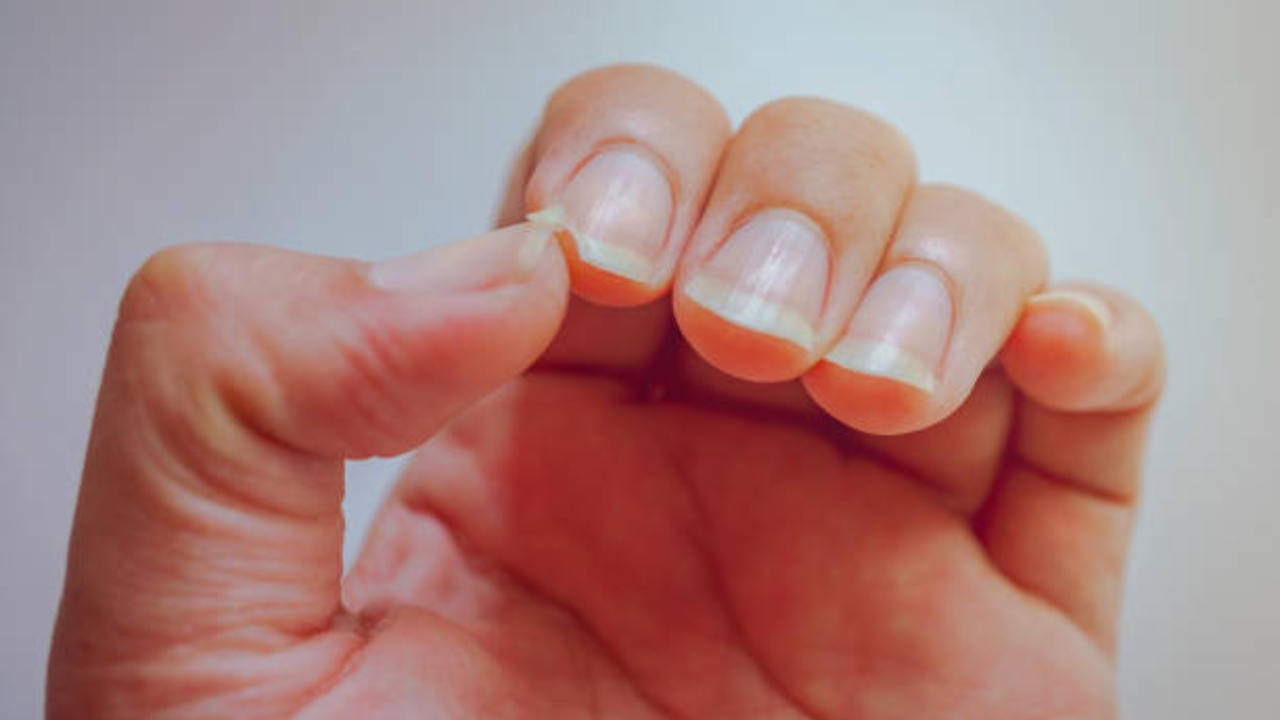Maintaining healthy fingernails involves a combination of good hygiene, a balanced diet, and proper nail care practices.
Your diet plays a crucial role in keeping your nails healthy
Nutrition plays a vital role in promoting healthy nails. Ensure your diet includes essential nutrients such as biotin, vitamins A, C, D, and E, as well as minerals like iron and zinc. These nutrients support overall nail health and can be found in foods like fruits, vegetables, whole grains, lean proteins, and nuts. If you struggle to get enough essential nutrients from your diet, consider taking supplements after consulting with a healthcare professional. Biotin supplements, in particular, are known to support nail health, but it’s essential to ensure you’re not exceeding recommended daily doses of any nutrient. Proper diet includes hydration as well. Proper hydration is crucial for healthy nails. Drinking an adequate amount of water helps maintain nail moisture, preventing them from becoming brittle and prone to breakage. Aim for at least eight glasses of water per day to keep your nails and skin well-hydrated.
Take care of your nails
Handle your nails with care to prevent damage. Use a gentle nail clipper to trim them straight across, then round the tips in a gentle curve. Avoid cutting too close to the skin or trimming the cuticles excessively, as this can lead to infections. File your nails in one direction to prevent splitting and weakening.
Frequent exposure to water, especially prolonged immersion, can weaken nails. Dry your hands thoroughly after washing, and consider wearing gloves while doing household chores or using harsh cleaning chemicals. Keeping your nails clean helps prevent bacterial or fungal infections.
What are trans fats? What makes them so dangerous?
Keep them moisturized to prevent dryness. This promotes flexibility, reducing the risk of splits and cracks. Use a moisturizer that contains ingredients like shea butter, vitamin E, or jojoba oil to nourish the nails and surrounding skin.
Limit salon visits
Frequent exposure to harsh chemicals and excessive filing can weaken nails. Limit the number of visits to nail salons and choose salons that prioritize hygiene and use high-quality products. If you enjoy using nail polish, choose high-quality, chemical-free polishes to minimize the risk of nail damage. Allow your nails to breathe periodically by leaving them polish-free for a few days. Use a base coat to prevent staining and a top coat to protect against chips. Check the ingredients in your nail care products, including nail polish removers and adhesives. Opt for acetone-free nail polish removers, and choose products that are free of harsh chemicals to minimize potential damage to your nails.
Pay attention to subtle signs
Pay attention to changes in your nails, as they can be indicators of underlying health issues. Discoloration, changes in thickness, or abnormalities in nail shape may signal potential health concerns. If you notice persistent issues, consult a healthcare professional for further evaluation.
How to obtain vitamin D from sunlight without harming your skin


